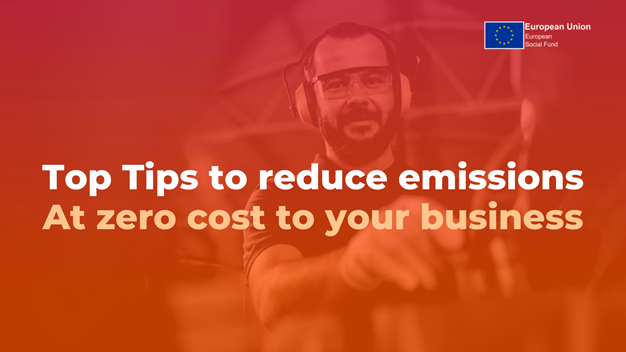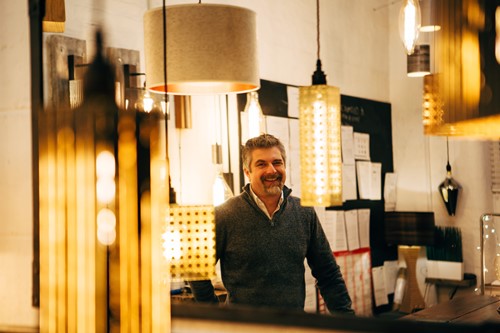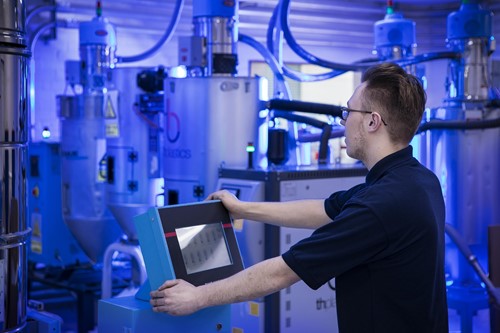Skills for Growth - SME Support is a fully funded, tailored service to help upskill your employees and improve business productivity.

Top tips to reduce emissions at zero cost to your business
No business, in fact no individual is exempt from the need to take environmental action towards the prevention of global warming. It’s a natural phenomenon heavily exacerbated by human activity, particularly since the industrial revolution and our continued energy use derived from burning fossil fuels which release carbon dioxide into the atmosphere. This blanket of emissions causes what’s known as the greenhouse effect, essentially turning the earth into a giant hot house, but one which is not quite so useful as a greenhouse in your backyard, rather one that cultivates disaster and devastation.
In order to reduce global warming and the disaster to ensue, the UK alone needs to cut emissions by 66% this decade. To that end, we’re heading in the direction of Carbon Neutral (offsetting emissions) and eventually Net Carbon Zero (reducing emissions as much as possible and offsetting any necessary emissions), but the majority of this change needs to be driven and led by businesses. In fact, 75% of the world’s biggest companies plan to deselect suppliers based on environmental performance, so for SMEs the need to take environmental action is paramount. In this article we’re offering some zero cost top tips to help businesses reduce emissions, using information provided by our colleagues at GC Business Growth Hub’s Journey to Net Zero programme.
Our top tips to going green
Heating and cooling
Did you know, the longer your heating is on and the higher the thermostat is set, the higher your bills will be. In fact, heating costs go up by around 8 per cent for every 1ºC increase.
No cost actions:
- Set office heating at recommended 19ºC, lower in corridors, storerooms and areas of higher physical activity.
- Set timers to correct dates/times, taking working hours, bank holidays and daylight savings into account.
- Allocate a responsible member of staff to heating control.
- Turn air conditioning off in unoccupied or less occupied rooms.
- Free up your radiators from any obstruction.
Myth buster:
- Turning the temperature up high on the thermostat will not heat the room up quicker!

Lighting
For many SMEs, lighting is the most energy-intensive part of their operations – responsible for up to 40% of a building’s electricity use.
No cost actions:
- Take an end of day survey to identify places where lights are being left on.
- Make sure the last person to leave a room knows to switch the lights off, and create promotional materials/reminders to raise awareness.
- Label all switches clearly to avoid confusion.
- Remove any obstruction from skylights and windows to allow maximum sunlight into the space.
- Minimise lighting in non-working areas i.e., corridors and remove surplus bulbs where appropriate.
Myth buster:
- Turning lights off and on doesn’t use more energy than leaving them on all the time. Moral of the story is to turn lights off and leave them off; the energy savings are instant.
Office Equipment
It may sound simple, but simple office equipment such as computers, printers and kitchen utilities can become a big energy drain if used poorly.
No cost actions:
- Ensure printers and photocopiers are only turned on when needed and set them to go to sleep about a few minutes of inactivity.
- Kettles use a surprisingly large amount of energy! Only boil enough water for the exact number of cuppas you’re making at any one time.
- Regularly defrost your freezers and maximise the use of space in fridges to allow the cool air to circulate properly.
- Put a procurement policy in place to ensure the lifetime costs of equipment are considered at purchase, rather than just looking at upfront costs.
Myth buster:
- Leaving equipment on standby isn’t a good way to save energy. Turn it off!

Production Equipment
Manufacturers are the most energy-intensive businesses. Whether its motors and drives, compressed air, ovens or refrigeration units, inefficient equipment is one of the biggest culprits for energy wastage.
No cost actions:
- Label switches correctly and ensure staff are trained in the correct procedures for operating machinery so they know what they can turn off and exactly how to do it.
- Establish the optimum setting for each piece of equipment – reducing the speed of a motor by just 20% can half its energy consumption.
- Keep all motors squeaky clean! Dirty equipment runs hotter and is more prone to failure.
Myth buster:
- Didn’t know there was a leak? Try walking around and listening out for a hissing sound, indicating a compressed air leak.
Transportation
Greater Manchester will launch a Clean Air Zone in early 2022 to reduce emissions and particle matter from vehicle exhausts which are linked with illness and disease. We have the highest levels of air pollution in the northwest, thought to be the cause of around 1200 deaths per year in GM alone.
No cost actions:
- Check tire pressure regularly to reduce rolling resistance and the fuel consumption needed to combat it.
- Turn off any automatic start-stop features on your Air Conditioning system and if you need to cool the cabin, do it the old-fashioned way… roll those windows down!
- Turn any unnecessary electricals off i.e., heated screens, demisters, headlights, and only use them when needed.
- Be mindful of your driving habits. Driving at speeds below 15mph and above 60mph burn’s fuel quickly, as well as frequent speeding and braking, and delayed gear changes.
Myth buster:
- Restarting your car wastes less fuel than idling for extended periods of time! If you’re stuck in traffic, turn the car off while you wait.
And there you have it! A comprehensive list of changes you and your team can easily make to reduce emissions and save on costs while doing it.
Useful Links
- For more information about fully funded ‘green’ skills, contact us on 0161 237 4444 or leave your details here for a call back.
- To find out more about Journey to Net Zero and support for your business, visit their page online or ask our Skills Coaches for a referral.
- To learn more about climate action in Greater Manchester, visit .
- Or, to read more about the Clean Air Zone in Greater Manchester, see our latest blog here.
The Growth Company is an award-winning, not-for-profit social enterprise with a mission to enable growth, create jobs and improve lives. We provide individuals and businesses with a wide range of services that improve employment, skills, investment and enterprise for the benefit of all, and have been working in the Greater Manchester city region for more than 30 years.
This project receives funding from the European Social Fund as part of the 2014-2020 European Structural and Investment Funds Growth Programme in England.
The Department for Work and Pensions is the Managing Authority for the England European Social Fund programme.
Established by the European Union, the European Social Fund helps local areas stimulate their economic development by investing in projects which will support skills development, employment and job creation, social inclusion and local community regenerations. For more information visit https://www.gov.uk/european-growth-funding.
